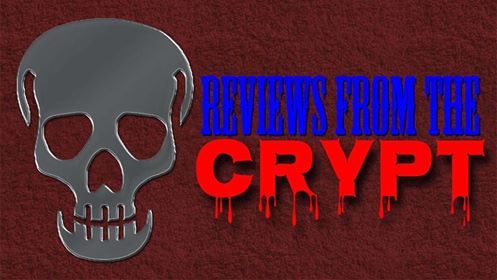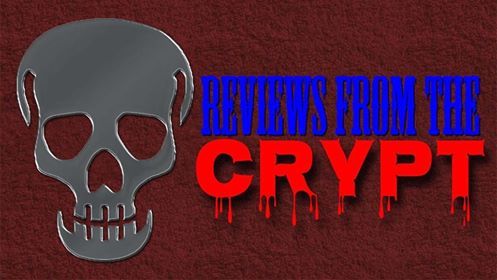
Something you may not be aware of: Universal has made an awful lot of Christmas films. We’ve already reviewed Holiday Inn, Last Christmas, and It Happened One Christmas in this column before. Universal’s connection to the Grinch franchise is well known as well, with their Grinchmas promotion at the Islands of Adventure park in Universal Orlando.
Yes, Universal knows Christmas.
How about Romantic Comedies? You have the Richard Curtis movies, naturally (more on that in a minute). The Doris Day flicks in the 60s were all Universal and Meryl Streep’s mature comedies like It’s Complicated and the Momma Mia films. So, they have a little street cred in that world as well.
Get it? Universal? World? I still got it.
Romantic comedies were riding high in the 80s and 90s. It seemed like Tom Hanks and Meg Ryan had a movie coming out every couple of weeks and they all did reasonably well given their reasonable budgets. Richard Curtis wrote and even directed a number of UK based rom-coms that did well for Universal during that period: Bridget Jones’s Diary, Notting Hill, Four Weddings and a Funeral, and today’s review: Love Actually. This is my hot take.
Richard Curtis kind of killed rom-coms with Love Actually.
Curtis was coming off a string of successful scripts and this was his first directing job. At the time, I remember stories that his goal was to make the ultimate rom-com and there is evidence throughout the film. It literally has storylines for days and represents a ton of different types of love. Represented, and this is just a sampling, include: brother/sister, interracial, language differences, geographical distance, unrequited, love of your best friend’s spouse, in the workplace, cheating on your spouse, obligational, chubby chasers, buddy…I’m sure I’m missing many.

In short, he succeeded to not only make a parody of rom-coms and the best of them in one film. Much as Abbott & Costello Meet Frankenstein killed the original Universal monster movies, by exposing the tropes of romantic comedies, this film made it a tough act to follow.
Rom-coms have returned lately and I think the popularity was exposed by the HCMU (Hallmark Christmas Movie Universe) films. Audiences knew they were missing something and those micro-budgeted cable films exposed the belly to many. Now, rom-coms are slowly re-emerging from the crypt they had been decomposing in for the past two decades.
So how did this movie crush the genre? By being better than the rest. Not only is it funny, it is star-studded, moving, emotional, intricately plotted and heart wrenchingly romantic.
Let’s bottom line some of these plotlines, shall we?
Let’s start with Billy Mack (played to perfection by Bill Nighy), the has-been rock star, and his pudgy manager Joe. This story plays up the Christmas aspect of the film as they begin a five week countdown to Christmas as Billy’s latest crass Christmas knock off album climbs the charts due to insanely lewd interviews Billy Mack provides to all the major news outlets. In the process, Billy Mack learns how important his friendship with Joe is to him.

Then we have Keira Knightley who is quite literally “Jessie’s Girl” if you remember the Rick Springfield hit that kicked off the 80’s. The heartbreak portrayed by Andrew Lincoln is some of the most moving of the film and perhaps one of the most romantic, and definitely the most heartbreaking, of the storylines.

Colin Firth is cheated on and finds love with a housekeeper that doesn’t even speak the same language as him. I always found this storyline a little surprising that we went from being cheated on to falling in love with someone you can’t understand and quickly LEARNING A NEW LANGUAGE in the space of five weeks. Still, timeline aside, it is a lovely tale.

Hans Gruber himself, Alan Rickman plays a boss that has an inappropriate relationship with his secretary when Emma Thompson, his wife, learns of the affair (how far it has gone remains a little ambiguous). Her reaction is different from Firth’s, but the situation is different as well. Where this film excels is in how it allows the themes and stories, while predictable thanks to being a part of the romantic comedy genre, they are also complicated tales.

Hugh Grant, as the Prime Minister, takes a shine to his household staff member while Billy Bob Thornton (as the United States President) visits. We come close to an international interest, but you know love conquers all. I always considered this the “A” story in the film and I’m pretty sure most of the screen time is dedicated to this story, but it is such a tightly wound film, it’s hard to tell.
Liam Neeson, who plays Emma Thompson’s friend (I believe they were married to each other at the time in real life), is a widower helping his young son get over the loss of his mother. Neeson portrays grief as well as anyone I’ve seen on film and the story is truly touching and the source of the driving action toward the climax.
Laura Linney, who works for Alan Rickman in the film, is in love with a coworker (the name of this firm should be Sexual Harassment and Associates, methinks). However, she is so busy with her obligations caring for a mentally ill sibling, it gets in the way of love.
Kris Marshall (from Death in Paradise) is a goofy Englishman who believes he is unsuccessful with women because he is in the UK and not Milwaukee, Wisconsin, where all the women are beautiful. Pretty sure this section of the movie was based on a true story.

Martin Freeman and Joanna Page are body doubles for sex scenes that fall in love innocently while performing simulated sex acts on each other. Yes, really.
Sounds like a mess, right? Somehow it all works together. It ties together with dozens of connections between the various characters on many different planes of relationships.
If you like romantic comedies of the British flavor, run, don’t walk, to see this film. This is quite possibly my favorite comedy, but definitely my favorite romantic comedy. Enjoy it with the ones you love!





















